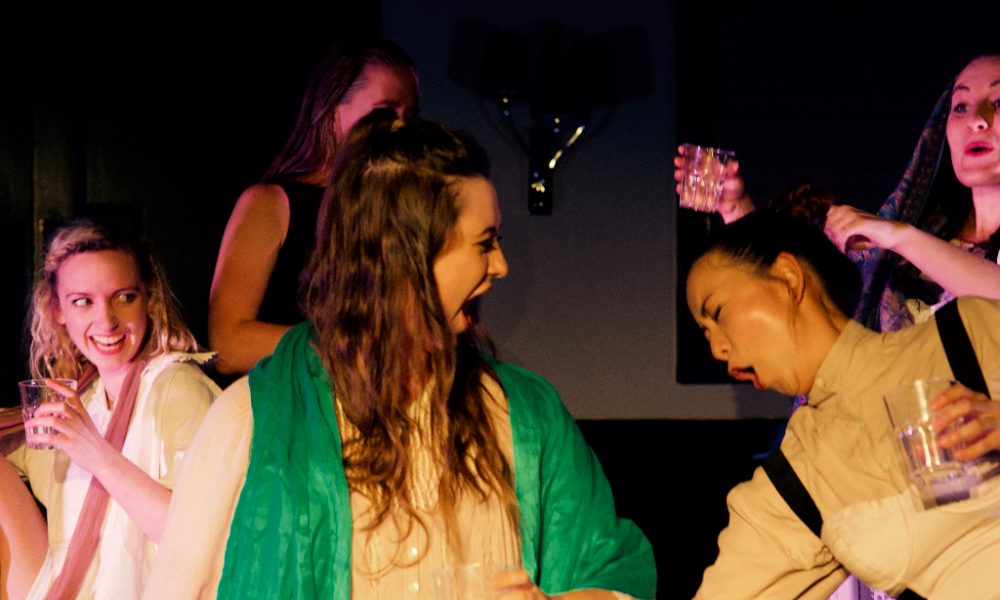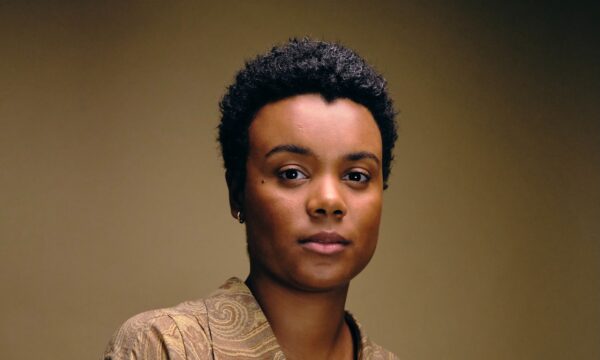Skin Deep at Camden Fringe 2017: An interview with Ashley Winter and Lee Anderson

Attila Theatre is a company that was formed in 2012, co-founded by Ashley Winter and Christopher Montague, who have both received Best Director awards at the Reading Fringe. With a focus on physical theatre, Attila have been devising ensemble pieces that question gender stereotypes and examine popular culture.
The company will be bringing their latest project, Skin Deep, to this year’s Camden Fringe following a sold-out run at the London Horror Festival in October 2016. With a text by Lee Anderson of SQUINT and a collaboration between directors Chris Montague and Ailin Conant and an ensemble cast, the play is about Erzsébet Báthory, one of the most powerful women in 16th-century Europe, who allegedly murdered almost 600 young women in cold blood. We chatted to Ashley Winter, who portrays Báthory, and writer Lee Anderson about bringing this grisly tale back to the stage, the rehearsal process and the risks and rewards of ensemble theatre.
At Attila you use a “messy yet distinctive visual style” of theatre. Can you expand on that?
Ashley Winter: It really means that we’re not scared of looking messy. We’re interested in gritty, organic movements more than polished pretty ones – we take inspiration from Lecoq, Commedia, clown and companies like Told by an Idiot. We’re not interested in naturalism. That’s for film and TV.
Skin Deep had a successful sell-out run at the London Horror Festival last year. How has the company reworked the piece for the Camden Fringe?
AW: We brought director Ailin Conant on board, whose experience working in physical theatre, mask and puppetry helped us develop the physical language and the multiple “worlds” of the play. We’ve introduced a chorus of maids to the piece too, who are present on stage most of the time. The story has become more clearly about the struggle to break free from societal constraints relating to gender and social status.
What drew you to Erzsébet Báthory’s story and why is now the time to tell it, and in this way?
Lee Anderson: Her story has passed into myth. It’s become a legend. For many people, the historical facts surrounding her life have become less interesting to people than the salacious and grisly details of her crimes. The fact she is a woman has a lot to do with this. We know and recognise that women commit violent crimes, and yet as a society I think we still struggle to reconcile women and violence. There’s this sense that men are the violent and destructive species, and women are something else – existing outside of that sphere of activity. I wanted to interrogate this, but I was also acutely aware of my own gender and “maleness”, and asked myself a lot whether I had the right to tell this story, to author these voices. Thankfully, I’ve had the pleasure to work with an incredible team of women and it’s been a highly collaborative process. So, with any luck, I haven’t completely fucked it.
The play is very much a collaborative piece of work. What is important about exploring themes – such as faith, power and sexuality – through this physical way of working? How does the writing and rehearsal process work?
LA: As a playwright, I’m used to writing a draft, handing it over to a director, getting notes, then going away and redrafting. Most of the time you repeat this process until the script is in a good place and you can share it with actors. For Skin Deep, it was entirely different. We mapped out the arc of the story very early on – as a company – and then it was my job to write the scenes in response to the cast’s devising and improvisation work. So it was a very intuitive and reactive process. Sometimes the actors would throw out brilliant lines or create exciting moments through sheer on-the-spot invention, and it was my job to capture that and give it form on the page. This is a new way of working for me.
You talk about “Myth. Matriarch. Murderer” in relation to Báthory, who is considered to be the world’s most vicious female serial killer. Is there a greater shock factor when we consider these women who go so severely against stereotypes? Are we particularly attracted to such gruesome tales and characters?
AW: Absolutely yes, there is a greater shock factor. Female serial killers are almost always sexualised in some way and Erzsébet is no stranger to being painted as a vampish femme fatale. Archetypes inform the way we understand the world and the people in it. Women are innocent virgins, caring mothers and wise crones; all creators or maintainers of life. When a woman deviates from these archetypes and destroys life, she becomes something mysterious and other. We are drawn to stories of female murderers because they pervert the archetype of the female creator.
What are the risks and rewards of ensemble theatre? Has Skin Deep been the most challenging project so far?
AW: Every project has it’s different challenges. We don’t have the most sympathetic protagonist ever, so we’ve looked at her in terms of the relationship between her sexuality, her bloodlust and her affection – interrogating them as much as we can because we didn’t want to fall into any culturally presented cliches.
How do you go about reaching new audiences? Does your style of theatre-making attract a different type of audience?
LA: To be honest, I’ve always struggled with the idea of “knowing your audience”. I think it’s something that matters a great deal when it comes to putting together Arts Council funding applications, in terms of identifying a demographic that will identify strongly with a given work. But I’ve always felt it to be a little reductive. When I’m sitting down to write a play or making a piece of theatre, I’m not consciously assessing the specific type of audience who I want to reach. That would be a rather cynical or prescriptive way to approach the creative process. I hope that whatever it is I make will touch as many people as possible. That’s the hope, anyway. I mean, obviously you’re aware of the buildings your making work for, you’re aware of their own audience demographics, but I try to resist the idea there’s a specific group who this particular work appeals to. It feels reductive to me. Perhaps I’m naive.
What would you say to someone who has never been to the theatre?
LA: I wouldn’t say anything. The last thing people need is educating on why theatre is worth their time. A lot of theatre is terrible. They probably have very good reasons for not going. There are a lot of barriers to going. We need to do better in doing away with those barriers. So I wouldn’t talk – I’d listen.
After Skin Deep what’s next for Attila?
AW: We’re developing a new show called Another Castle, which is about mental health and video games. We’re going to be working with animation, projection and physical theatre, which is super exciting.
The editorial unit
Skin Deep is at the Lion and Unicorn Theatre as part of Camden Fringe Festival 2017 from 31st July until 6th August 2017. For further information or to book visit here.
For further information about Attila Theatre visit the website here.
For further information about Camden Fringe Festival 2017 visit the website here.
























Facebook
Twitter
Instagram
YouTube
RSS